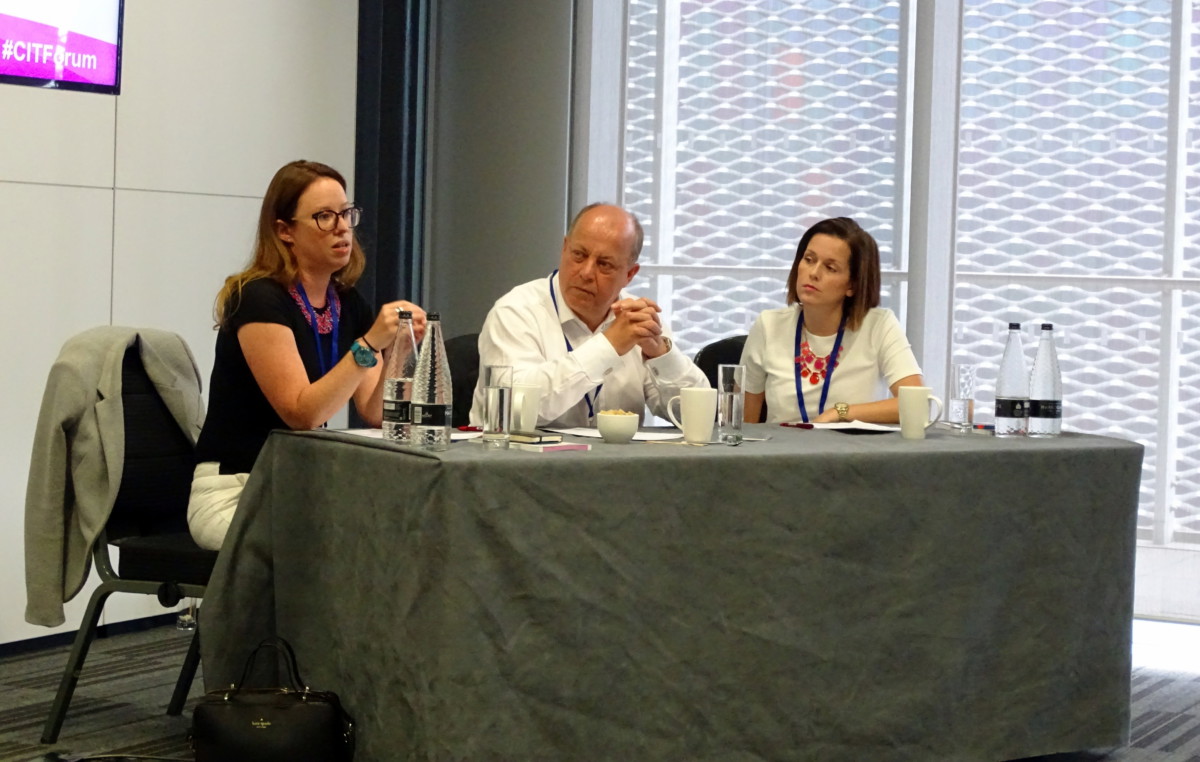Do you protect your intellectual property when you pitch to clients? How can you protect your intellectual property throughout the pitching process and what is actually intellectual property?
Protecting IP while protecting your relationship was one of the sessions at the C & IT Agency Forum I attended back in August at the ExCeL London. The sessions gave useful tips on understanding and protection intellectual property (IP) and the panellists included Dale Parmenter, CEO at DRP Group, Lucy Francis, General Manager at CI Events and Rebecca O’Kelly-Gillard, Senior Associate at Bird & Bird LLP.
Rebecca kicked off the session to explain what is an IP from a legal perspective and advised that organisations should protect their IP on all levels. For example, do your employees have IP clauses in their employment contracts, how do you liaise with partners and suppliers or whether you have strategic alliance. If you bring someone with expertise you don’t have, who owns the IP that is created?
As an organisation you must think about every single stage of the process – what are you doing contractually before you even go into the pitching process.
Understanding intellectual property
IP includes four things:
- Patent: innovations or inventions covered by a patent.
- Trademarks: logos and slogans and business related catch phrases.
- Copyright: any document created by you.
- Trade secret: everything you do and how you’ve built your business. For it to be a trade secret you need to say it and define within the organisation. Record the know-how, keep a database of key ideas and creatives. If shared with someone must tell that it’s confidential.
Copyright is the most important for event professionals. Record all documents, visuals and pitches with date, company name and logo. When they are recorded a copyright exists, and will help you prove it and strengthen your argument if breached in the future.

Establishing trust and relationship
Lucy shared that throughout the request for proposal (RFP) process there are different levels of trust and ways of protecting the IP. From the very beginning you must define how well you know the client and whether you can trust them. In later stage IP becomes on a contractual level, for example, if they commit for the event but how to ensure they won’t use the IP within other areas of their business in a later stage.
When clients send you the RFP, they can ask for different things: overall creative concept, theme, dinners etc. If you don’t know the client and don’t have the level of trust, will you be willing to share? If they are not ready to give you face time and invest in the relationship it’s a warning sign for you.
Before you go into the pitching process, Dale suggested making research about the client. This way you can ensure not being used. Ask yourself whether it’s a “fashion show” when they’ve already decided and just looking for some ideas.
Procurement department is obliged to “play by the book” and it’s recommended liaising with them over communication or marketing teams.
If you get RFP with one sided non-disclosure agreement (NDA) from the client, tell them to make it both-sided. Each company should have two NDAs, one for the company for owning all the creative, second a mutual one with “everything that each side brings to the table is mutually confidential” and this also shows professionalism from both sides.
Protecting intellectual property
Lucy suggested using methodology method during pitches to create the programme, e.g. – don’t pitch the theme but how you will go about the process and come up with solutions. This is a good approach because rarely clients will agree immediately on event concept, some parts will stay, others change. Event methodology and event case studies can protect you and also help your case when pitching. When briefs are vague it’s not necessary to go into details during pitches. Case studies are recommended in the first stage of the pitch.
Also be conscious of client’s IP and use their IP correctly. These include brand guidelines and up-to-date material, don’t use their copyright material in your work with your copyright stamps on it. Also make sure to acknowledge everyone. Most popular example is photography, e.g. – have your own photographer at events and don’t take images from google.
Trust your gut feeling – when receiving a brief, be attentive to what type of questions are they asking, are they after your ideas?
When agencies don’t win the pitch they will sometimes check in a later stage whether the client held the event. If it happens that they went ahead and used the ideas without acknowledging, the agency can go to procurement. But before must have something that proves the wrong doing.
Unfortunately, you can’t prevent clients copying your ideas, but you can give extra hurdles. Put the document in a PDF format and use watermarks, for example.
Lastly, have strong relationships with suppliers so if the client goes past you, the agency, the supplier can inform you. Tell the supplier who you’re pitching to and they’ll have an obligation to inform you. Establish a transparent and honest relationship with your suppliers.




No Comments